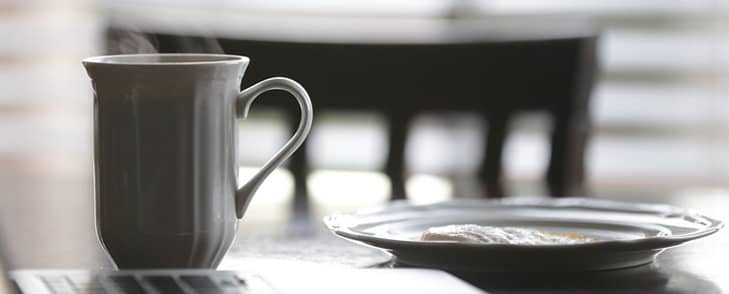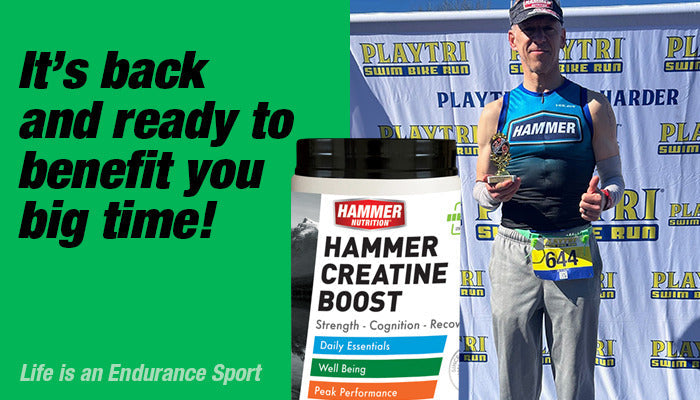
Stoke your performance by beginning each day with this vital meal
By Brian Frank
You are certainly familiar with the old cliche "breakfast is the most important meal of the day." The saying "eat breakfast like a king/queen, lunch like a prince/princess and dinner like a pauper" might be another one you've heard batted around over the years.
But are they just sayings? Actually, both are in fact 100% true! However, many of us tend to skimp on this meal or skip it altogether. The reasons are myriad, but at the end of the day, breakfast gets neglected. If this rings true for you, I hope you'll keep reading and resolve to become a breakfast champion. The benefits to your overall health, metabolism, energy levels, and ultimately to your performance are well worth the effort and the change.
The Importance of Break-Fast
While it might not be the case with the words we use for our other meals, "breakfast," or break- fast, describes what this meal accomplishes. You are breaking an overnight fast, and now the body needs fuel to fire up the factory for the day. Absent an adequate supply of fuel, the body has no choice but to operate at limited capacity. So, instead of ramping up energy production to meet your needs, the body has to slow metabolism due to the limited calories on hand to process. This metabolic dysfunction not only lowers our energy levels, but also makes us more prone to store the calories that we take in later in the day instead of burning them up. Consuming the majority of your calories in the afternoon/evening only compounds the problem.
I can already hear people mouthing the reasons why they don't eat a proper breakfast, with the most common being 1) not enough time to prepare a meal in the morning; 2) no appetite in the morning; and 3) if I eat a big breakfast, then I feel hungry all day. I'll address each of these separately.
Overcoming the Obstacles
No time to eat in the morning - For me, this comes down to planning and breaking away from the meat-egg-potato-cereal-dairy-fruit breakfast paradigm. In Vietnam, for example, breakfast is a large bowl of Pho soup, a hearty beef stock with meat, vegetables, and rice noodles. Pho is a complete meal that satiates for hours and provides protein, complex carbs, and fat. While I'm not suggesting that you have Pho daily for breakfast, I am suggesting that eating leftovers for breakfast or making larger portions at dinner, which you can repurpose in the morning. In fact, we often make extra protein and starch for dinner so it can be eaten for breakfast the next morning. Chicken, rice, and vegetables scrambled up with a couple of eggs works for me. Of course, if you like cereals, dairy, or dairy substitutes and fruit, that's great too. My point is to plan and/or prepare breakfast in advance; that way, when you are hurried in the morning, you can just grab and go.
No appetite - This is a case of the tail wagging the dog. Your appetite is a reflection of your eating patterns, not some internal clock that accurately signals when you need food. What? Think about this: How would you feel if you went 8-10 hours or more during the day without consuming any calories? Your appetite would go haywire. So, not feeling hungry when you wake up after fasting for 8-10 hours clearly means that your appetite is not always functioning accurately. In this case, you know the need and you must meet it, regardless of the presence (or absence) of hunger pangs. I can also guarantee that after forcing yourself to eat a proper breakfast for a week or two, you'll wake up in the morning feeling hungry, with your stomach grumbling!
Eating a big breakfast makes me feel hungry all day - Exactly! This only serves to bolster my main point about fueling up the factory and revving up your metabolism for the whole day after a long fast. It's also another indicator of the inaccurate signals our appetite gives us. The good news is that this sensation does not last. After a couple of weeks, your appetite will recalibrate and you'll feel fine. During that re-programming time, just be sure to eat what you know you need to eat, and avoid being a slave to your appetite. I mean eat three square meals each day, light snacks in between, and no snacking between dinner and bedtime.
What's a Healthy Breakfast?
The last point of resistance is "what to eat?" While that is beyond the scope of this article, your goal should be to get 20-30 grams of protein, 60-90 grams of carbs, and whatever fat comes along or you can add to the first two. We have many good breakfast recipes in our cookbook, In the Kitchen with Hammer Nutrition, if you need ideas.
Just as "they" were right about eating your vegetables, "they" are also spot on when it comes to breakfast. Winning at breakfast is the first step towards winning everywhere else. If you've been neglecting your first meal of the day recently, or for years, make this the year you correct that and enjoy all of the benefits that come with it.










